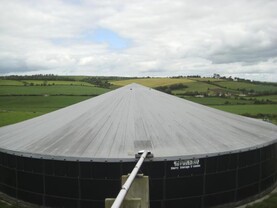The European Parliament has given the green light to the new CAP package.
The CAP programme now goes to the Council of Ministers for final approval, with the new rules coming into force on 1 January 2023.
As part of the new programme, farmers will have to comply with stricter climate-change and environmentally-friendly practices.
These will be included in CAP national strategic plans, which must be submitted to the European Commission for assessment before the end of the year.
Ireland’s national strategic plan is currently being finalised by the Department of Agriculture.
The CAP package was given majority approval in three separate votes in the European Parliament.
Voting results
A ‘strategic plans regulation’ was adopted by 452 votes in favour, 178 against and 57 abstentions. A ‘horizontal regulation’ was carried by 485 votes in favour, 142 against and 61 abstentions. In addition, a ‘common market organisation regulation’ vote was carried by 487 in favour, 130 against and 71 abstentions.
Reacting to the vote, Irish MEP Luke ‘Ming’ Flanagan said that while some people might feel “badly let down” by the lack of ambition in the CAP agreement, he had voted for it because failure to support the current package left farmers on lower payments with the “rubbish status quo”.
Flanagan said that while the CAP package was “far from perfect”, it would deliver close to 90% convergence.
Fianna Fáil MEP Billy Kelleher admitted that while there would be challenges with implementing the new regime, the alternative was “going back to full negotiations” and no-one wanted such a scenario.
The Cork-based MEP welcomed the increased level of government support for Pillar II programmes, but called for greater flexibility on schemes to suit both part-time and commercial farmers.
“I’m supporting CAP, but we have a lot of work to do in Ireland to bring forward schemes that are suitable to the needs of Irish farmers, Irish agriculture and the Irish environment,” Kelleher said.
Similar sentiments were expressed by Fine Gael MEP Colm Markey. That the CAP negotiation took three and a half years was indicative of how “difficult and comprehensive the talks process was”, he maintained.
Markey claimed three or four more eco-scheme measures were needed to address the “limited options” available to “intensive farmers”. He said he was also conscious of the difficulties around convergence.






 This is a subscriber-only article
This is a subscriber-only article










SHARING OPTIONS: